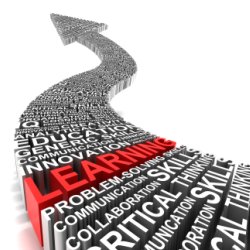Each day, we are faced with choices both large and small, from deciding what to eat for breakfast to making significant career moves. Find out more to make effective decisions can significantly impact the quality of our lives, our relationships, and our achievements. Yet, many persons struggle with making decisions, often feeling overwhelmed by the options before them or frozen by the fear of making the incorrect one. Comprehending the nuances of decision making is crucial to navigate these challenges and empower ourselves to make decisions that align with our goals and values.
In this piece, we will investigate important skills and methods that will improve your decision-making capabilities. From mastering the craft of wise decision-making to recognizing the mental factors at play, we will delve into proven strategies to help you make confident choices even under stress. We'll also consider the significance of balancing intuition with logic, leveraging emotional intelligence, and learning from past experiences. Whether you are seeking to make daily decisions more efficiently or addressing complicated dilemmas, the insights shared here will arm you with the capabilities needed to improve your decision-making process and encourage mental clarity for a more capable mindset.
Validated Strategies for Efficient Decision-Making
Effective decision-making is crucial for personal and career development. One validated technique is the use of decision making models, including SWOT or the DECIDE model, which helps individuals methodically assess their choices. By evaluating strengths, weaknesses, possibilities, and risks, or identifying the problem, exploring options, considering the outcomes, establishing values, and reviewing the choice, one can make thoughtful choices that align with their objectives.
Another essential method involves utilizing emotional intelligence. Understanding and managing your emotions, as well as acknowledging the emotions of others, enhances your capacity to navigate difficult choices. This skill allows for better collaboration, particularly in team decision-making scenarios where differing viewpoints can create conflict. Practicing understanding and dialogue can lead to more cohesive and favorable outcomes.
Lastly, developing awareness can greatly improve decision-making. Taking a moment to pause and reflect before taking action allows you to weigh options more carefully. By reducing anxiety and improving concentration, mindfulness aids in avoiding hasty choices fueled by pressure. Adding daily habits such as mindfulness meditation or reflective journaling can additionally support clear thinking, empowering you to make decisive choices in ambiguous situations.
Comprehending the Psychological Aspects of Choices
The mechanism of forming options is heavily affected by our perceptual distortions and feelings. Every decision we face triggers a sequence of mental evaluations that can direct us to favorable or detrimental consequences. Understanding these cognitive elements helps in recognizing the reasons we may tend toward particular decisions over others. For instance, confirmation tendency can cause individuals to seek out data that supports their pre-existing beliefs, possibly obscuring their decision-making and resulting in suboptimal choices.
Feelings play a crucial role in our choices as also. Fear or anxiety can skew perception, leading to evading or rash choices that we might later wish we hadn’t made. Conversely, positive feelings can improve our mental adaptability, allowing for a wider viewpoint when assessing choices. Awareness of the affective context that surrounds our decisions is crucial to utilizing our intuition effectively and cultivating a more balanced method to making choices.
In furthermore, social factors considerably affect our options. The inclination to align to group beliefs can lead to group decision errors, such as group consensus, where the evaluation of different choices may be overlooked in the direction of cohesion. Grasping the interactions at play in group settings, such as social coercion or the need for approval, allows us to navigate these circumstances more effectively. By developing knowledge of these psychological components, we can enable ourselves to make more informed and confident decisions.
Strategies for Decisive Choices
To make decisive decisions, it is essential to establish a structured approach. Begin by clearly defining the issue you are facing and gather pertinent information to understand the context. Utilize decision frameworks that suit your needs, such as the pros and cons list, the SWOT framework, or the decision matrix. By arranging your thoughts and potential outcomes, you can reduce confusion and enhance understanding, making you more comfortable with the options at hand.
Another effective strategy is to incorporate both instinct and reasoning into your decision-making process. Following your gut feelings can yield valuable insights, especially when supported by empirical evidence. Strive for a harmony between feelings and logical reasoning. This combined approach allows you to make decisions that not only are rational but also align with your beliefs and feelings, resulting in greater confidence in your final choice.
Finally, engage in awareness and reflection in your decision-making process. Taking effective decision-making to pause and evaluate your thoughts can help combat decision fatigue and the fear of making the wrong choice. Implement daily habits that foster a proactive mindset, such as meditation or keeping a journal. These habits strengthen your ability to navigate complex decisions and promote a sense of serenity, leading to more decisive decision-making in both personal and professional scenarios.

